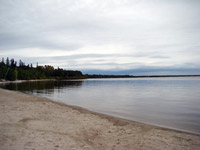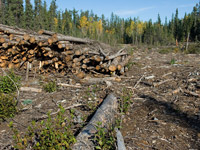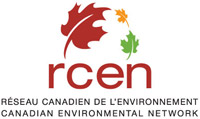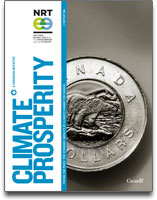
News |
- Obama Challenged to Keep GMO Promise
- Avaaz Hits 10 Million!!!
- Lake Winnipeg Terms of Reference Inadequate
- Legality of Dickstone Road Sees Judicial Review
- Canadian Environmental Network Funding Slashed
- TransCanada Keystone XL Pipeline Scandal Spreads
- Auditor General and EU Identify Oil Sands Problems
- Scientists Support World Heritage Site During Election
- Manitoba Hydro On Cost Cutting Mission
- NRTEE Reports Climate Change Costs
- Nobel Peace Laureates Demand Tar Sands Expansion Stop
- Clean50 List Honours Pembina and WWF
| Obama Challenged to Keep GMO Promise | 21 October 11 |
|
Polls consistently show that more than 90 per cent of Americans want GMO foods to be labelled. Labelling is required in other countries including: European Union, Australia, New Zealand, Japan, Korea, Brazil, and China, but not required in the United States or Canada. Most processed foods contain at least traces of genetically altered corn, soybeans and other crops. Roughly half the sugar sold in American stores comes from genetically modified sugar beets. "This is about the consumer's right to transparency. People deserve the right to know what they're eating," said Gary Hirshberg, CEO of Stonyfield Farm, a member of the Just Label It coalition. The Just Label It coalition also launched an online and television campaign to pressure the FDA and US President Barrack Obama. On November 10, 2007, while campaigning for President, then Senator Obama promised: "Here's what I'll do as President... we'll let folks know whether their food has been genetically modified because Americans should know what they're buying." View Just Label It websiteView October 18 & October 11, 2011 Huffington Post articles View October 5, 2011 St. Louis Post-Dispatch article View October 4, 2011 Center for Food Safety (CFS) press release View CFS legal petition View October 4, 2011 Reuters article View October 4, 2011 Associated Free Press article Source:
Reuters, AFP, Huffington Post
|
|
 Print version Print version |
Top |
| Avaaz Hits 10 Million!!! | 21 October 11 |
 The Avaaz community reached 10 million people on October 10, 2011.
The Avaaz community reached 10 million people on October 10, 2011.The online community uses online petitions and social media to organize mass outrage and fast responses on the internet. Avaaz success stories include helping to push for the UN sanctioned no-fly zone in Libya, lobbying for anti-corruption reforms in India and Spain, getting hotel chains to agree to inspect for signs of sex slavery, and working to stop the proliferation of further monopolization of the media. Avaaz petitions that pertain to Canada include petitioning Quebec Premier John Charest not to fund asbestos companies; recent asbestos petitions; and petitioning to stop the TransCanada Keystone Pipeline that will transport oil from Alberta's oil sands to the US for refining and export. Avaaz has members in in every nation of the world, operates in 14 languages, with a team that is spread across 13 countries and four continents. View October 10th, 2011 Avaaz press releaseView Avaaz website Highlights: Success stories from the Avaaz movement worldwide View Avaaz petition Canada Causes Cancer View Avaaz petition Days left to Stop Canada's Deadly Oil View July 21, 2011 Guardian coverage Source:
Avaaz
|
|
 Print version Print version |
Top |
| Lake Winnipeg Terms of Reference Inadequate | 14 October 11 |
 Premier Greg Selinger announced public hearings regarding the final license for Lake Winnipeg Regulation (LWR).
Premier Greg Selinger announced public hearings regarding the final license for Lake Winnipeg Regulation (LWR).This was confirmed in a July 5th, 2011 Manitoba Government press release and two letters sent to CEC Chair Terry Sargent from Conservation Minister Bill Blaikie on July 5th and September 1st, 2011. Manitoba Hydro has used Lake Winnipeg as a reservoir for power generation since an interim license was granted in 1972. Manitoba Hydro requested a final license December 22, 2010. In a joint letter signed by Manitoba first nation, faith-based, and environmental organizations the signatories urge Premier Selinger to ensure that the terms of reference include: an operational and historic review of Lake Winnipeg Regulation, an environmental effects assessment, and funding for both citizens and independent experts to participate in the hearings. "More than two years of closed meetings about the Churchill River Diversion have passed without public meetings. There is an obvious connection between Lake Winnipeg Regulation and the Churchill River Diversion Project. This means we also need a public process and/or hearings for the Churchill River Diversion as suggested by the CEC after the Wuskwatim hearings," said Gaile Whelan-Enns. View September 28th, 2011 Selinger letter re: Lake Winnipeg Regulation (PDF)View Clean Environment Commission Lake Winnipeg Regulation page View July 5, 2011 Manitoba Government news release View July 9, 2011 Manitoba Wildlands news item View January 25, 2011 Manitoba Wildlands news item View Manitoba Wildlands Hydro Projects page View Manitoba Wildlands Lake Winnipeg page View Manitoba Energy, Churchill River Diversion Project Source:
Manitoba Wildlands and Manitoba Eco-Network Water Caucus
|
|
 Print version Print version |
Top |
| Legality of Dickstone Road Sees Judicial Review | 14 October 11 |
 The legality of a logging road being built through Manitoba's Grass River park was questioned at a October 11th, 2011 Manitoba Queen's Bench hearing.
The legality of a logging road being built through Manitoba's Grass River park was questioned at a October 11th, 2011 Manitoba Queen's Bench hearing.The Wilderness Committee requested a Manitoba Queen's Bench rule review concerning the legality of the South Dickson Road logging road being built by Tolko, because the road was authorized by the Government of Manitoba following amendments to the Manitoba Parks Act and Forest Act which banned logging in provincial parks. "We're asking a judge to look at this legislation as it was written to determine if a logging road is considered logging," Eric Reder, a spokesman for The Wilderness Committee, said outside court. Tolko is building the road exclusively for its own use to access cutting areas north of Grass River Provincial Park. The judge reserved his decision about the correct interpretation of the scope of statutory provisions prohibiting logging in provincial parks. Manitoba Wildlands will post the decision when released. View October 12, 2011 Winnipeg Sun articleView October 11, 2011 CBC article View Wilderness Committee brief (PDF) View Manitoba Conservation brief (PDF) View September 18, 2011 Manitoba Wildlands news item View June 25, 2011 Manitoba Wildlands news item View Manitoba Wildlands Manitoba Forest Companies & Tenure Tolko page Source:
CBC News
|
|
 Print version Print version |
Top |
| Canadian Environmental Network Funding Slashed | 14 October 11 |
 The Canadian Environmental Network (RCEN) received notice October 13th, 2011 that it would not receive its annual funding of $547,000. Environment Canada indicated in May of 2011 that the government would renew funding. RCEN, a network of 640 environmental organizations across Canada, has received federal funding each year for decades.
The Canadian Environmental Network (RCEN) received notice October 13th, 2011 that it would not receive its annual funding of $547,000. Environment Canada indicated in May of 2011 that the government would renew funding. RCEN, a network of 640 environmental organizations across Canada, has received federal funding each year for decades.RCEN is now scrambling to get Environment Canada to reverse its decision, while preparing for layoffs within the organization. Oliver Kolmel, chairperson, said RCEN has attempted to reach out to Environment Canada, but has so far seen "no response" to requests for a review of the decision to withdraw funding. According to Kolmel, Environment Canada indicated in its notice to RCEN that it made its decision after conducting a review of finances for grants and program contributions within the department. Kolmel said if the government cuts ties with RCEN, they will be losing out on a valuable resource that would be very costly to replace. The agency previously helped the federal government engage the public in the creation of the Canadian Environmental Assessment Agency as well as the adoption of the Canadian Environmental Protection Act., and routinely assisted with cross Canada information sessions and consultations. "We have been around for 30 years and we have millions of volunteer hours that have been given by our membership," said Kolmel. View October 13, 2011 Canadian Environmental Network (RCEN) press releaseView October 14, 2011 CTV News article View October 14, 2011 Vancouver Sun article View October 14, 2011 Rabble.ca article View October 14, 2011 MiningWatch Canada article View October 14, 2011 The Vancouver Sun article Source:
RCEN, CTV, Rabble.ca
|
|
 Print version Print version |
Top |
| TransCanada Keystone XL Pipeline Scandal Spreads | 14 October 11 |
 The US State Department review of the proposed TransCanada Keystone XL pipeline has been called into question because the company who provided the Keystone XL environmental impact assessment (EIA) has financial connections with TransCanada Pipelines.
The US State Department review of the proposed TransCanada Keystone XL pipeline has been called into question because the company who provided the Keystone XL environmental impact assessment (EIA) has financial connections with TransCanada Pipelines.The US State department hired Cardno Entrix to do the EIA after asking TransCanada for a list of companies to approach. Cardno Entrix has been contracted by TransCanada in the past and lists TransCanada as one of their biggest clients. It is common for the US government to outsource Environmental Impact Assessments due to lack of in department resources. But the fact that it ignored such an obvious financial connection has raised substantial concerns. The evidence suggests the US government let TransCanada handpick the firm assessing impacts of the proposed Keystone pipeline. Cardno Entrix's prior financial connection with TransCanada may be a motivation behind Cardno Entrix submitting a finding that the Keystone XL pipeline will have ‘little impact’ on the environment. View October 7, 2011 New York Times articleView October 10, 2011 Mongabay.com article View September 6, 2011 Mongabay.com article View Tar Sands Action website View October 12, 2011 The Nation article View September 28, 2011 Climate Action Network Canada news release |
|
 Print version Print version |
Top |
| Auditor General and EU Identify Oil Sands Problems | 14 October 11 |
 Canada's Office of the Auditor General released a October 4, 2011 report identifying the federal government's failure to account for the cumulative impacts of Alberta oil sands development. The report from Environment Commissioner Scott Vaughan also confirmed that information about Canada's greenhouse gas emissions is so poorly collected that the country really has no idea whether it is on track to meet its pollution reduction targets.
Canada's Office of the Auditor General released a October 4, 2011 report identifying the federal government's failure to account for the cumulative impacts of Alberta oil sands development. The report from Environment Commissioner Scott Vaughan also confirmed that information about Canada's greenhouse gas emissions is so poorly collected that the country really has no idea whether it is on track to meet its pollution reduction targets.According to the report, "The government has not put in place management systems and tools needed to achieve, measure and report on greenhouse gas emission reductions." The report also slammed Canada's oversight of Alberta oil sands industry pollution. Failing to collect baseline data prior to industrialization of the region - and then failing to conduct regular monitoring of impacts from oil sands mining and processing were both sited. The Environment Commissioner’s report came out the same day The European Commission announced it had approved including oil sands products in its green house gas emissions from fuels criteria. The EU is completing legislation introduced in 2008, when the EU agreed to reduce the carbon intensity of its transport fuels by six per cent by 2020. The 2008 fuel quality directive assigns greenhouse gas emissions values to transport fuels. A decision to include oil sands was delayed after Canada said the EU’s standards to promote greener fuels would harm the market for its oil sands. The Commission will propose that oil sands hold a default greenhouse gas value of 107 grams of carbon per megajoule, making it clear oil sands has a greater climate impact that conventional crude oil, whose value is 87.5 grams. View October 4, 2011 Office of the Auditor General of Canada press releaseView October 4, 2011 Office of the Auditor General of Canada, Chapter 2: Assessing Cumulative Environmental Effects of Oil Sands Projects View October 4, 2011 Globe and Mail article View October 4, 2011 Northumberland View article View October 4, 2011 Desmogblog.com article View October 4, 2011 Financial Post article View October 4, 2011 Sun New Network article View October 4, 2011 Global News article Source:
Office of the Auditor General of Canada, Globe and Mail
|
|
 Print version Print version |
Top |
| Scientists Support World Heritage Site During Election | 1 October 11 |
 Manitoba's NDP received support during the current election campaign for its plan to keep the boreal forests on the east side of Lake Winnipeg intact. Seventy five scientists from across Canada and the US endorse the intended World Heritage Site, urging Manitoba to protected one of earth's largest intact boreal forests.
Manitoba's NDP received support during the current election campaign for its plan to keep the boreal forests on the east side of Lake Winnipeg intact. Seventy five scientists from across Canada and the US endorse the intended World Heritage Site, urging Manitoba to protected one of earth's largest intact boreal forests.The Manitoba government endorsed the First Nation initiated World Heritage Site nomination in late 2004, and announced in 2009 that a trust fund for the world heritage site would be established with The Winnipeg Foundation. Lands planning for 16 First Nations throughout the region was initiated in 2004. To date the only lands plans drafted are for those First Nations involved in the World Heritage Site nomination process. The nomination Site is about 3 million hectares within a huge 20 hectare boreal region. Currently the Manitoba government is building a road network in the region, and has signed agreements for new cottage developments. View September 29, 2011 CBC News articleView September 29, 2011 Canadian Boreal Initiative media release |
|
 Print version Print version |
Top |
| Manitoba Hydro On Cost Cutting Mission | 1 October 11 |
 In the last week of Manitoba's provincial election a vice president and the outgoing CEO for Manitoba Hydro initiated a wide ranging internal cost cutting program. The corporation wide memo describing the program was leaked to Winnipeg media.
In the last week of Manitoba's provincial election a vice president and the outgoing CEO for Manitoba Hydro initiated a wide ranging internal cost cutting program. The corporation wide memo describing the program was leaked to Winnipeg media.During the election campaign and year leading to the election, Manitoba Hydro has been surrounded in controversy. The Public Utilities Board has asked the courts to secure information about Manitoba Hydro energy exports agreements; permanent licences for the Churchill River Diversion have been the subject of secret meetings over two years, with no Winnipeg public meetings; and public hearings about the regulation and health of Lake Winnipeg were a final pre election announcements by the NDP government. Both parties have stated they will keep the utility publicly owned. The NDP and the PC Party of Manitoba joust continually about the route for the new Bi Pole III DC line from northern to southern Manitoba. The line is apparently needed because existing bi pole lines are 40 years old and in the same corridor, which reduces energy supply security and reliability. Both parties, should they form government, intend to build Keeyask and Conawapa hydro generation stations, both of which will require additional transmission lines and corridors. The cost cutting program includes "delaying all costs on capital projects". The Keeyask generation project already holds a staged licence for infrastructure and site preparation and costs of around $300 million. View September 29, 2011 Winnipeg Sun articleView September 29, 2011 CBC News article View September 27, 2011 Manitoba Hydro memo (PDF) |
|
 Print version Print version |
Top |
| NRTEE Reports Climate Change Costs | 1 October 11 |
 Canada's National Roundtable on the Environment and the Economy (NRTEE) has published a report indicating the potential cost of climate change to Canada. According to the report; Paying the Price: the Economic Impacts of Climate Change for Canada, if greenhouse gases are not reduced and if Canada does not invest to adapt to climate change, the cost to Canada will be in the billions.
Canada's National Roundtable on the Environment and the Economy (NRTEE) has published a report indicating the potential cost of climate change to Canada. According to the report; Paying the Price: the Economic Impacts of Climate Change for Canada, if greenhouse gases are not reduced and if Canada does not invest to adapt to climate change, the cost to Canada will be in the billions.The report is the first national analysis of the impact climate change could have on Canada's economy. The report goes on to say that the impact of climate change on Canada's economy could cost from $5Billion by 2020 to $43 Billion by 2050. The NRTEE analysis indicates that if climate change accelerates in combination with population and economic growth in Canada the costs could rise as much as $91 Billion by 2050. "This report sets out to help all of us - governments, business, and communities - to make climate-wise investment choices now, and in the future. The economic information we provide here will further help us understand what is at stake if we fail to respond and GHG emissions continue to rise," said NRTEE Vice-Chair Robert Slater. View September 29, 2011 NRTEE news releaseView NRTEE Media Backgrounder View 2011 NRTEE report summary View 2011 NRTEE report (PDF) View Manitoba Wildlands Climate Change: Canada Initiatives page |
|
 Print version Print version |
Top |
| Nobel Peace Laureates Demand Tar Sands Expansion Stop | 1 October 11 |
 The Nobel Women's Initiative has written a letter to Prime Minister Stephen Harper calling on him to stop the expansion of the Tar Sands development in Alberta. The letter is signed by eight Nobel Peace prize Laureates including Archbishop Desmond Tutu and Guatemalan
President José Ramos-Horta.. This letter follows the letter written to President Obama calling for the president to reject the Keystone XL pipeline.
The Nobel Women's Initiative has written a letter to Prime Minister Stephen Harper calling on him to stop the expansion of the Tar Sands development in Alberta. The letter is signed by eight Nobel Peace prize Laureates including Archbishop Desmond Tutu and Guatemalan
President José Ramos-Horta.. This letter follows the letter written to President Obama calling for the president to reject the Keystone XL pipeline.The letter reminds the Canadian Prime Minister he has 'a privileged opportunity to help lead Canadians towards a better future' and states 'it would be wrong for this generation to make this planet uninhabitable when we know that our children and grandchildren will be forced to deal with the consequences'. Strong words from people who have dedicated their lives to humanity's journey to a better tomorrow. The letter was released just two days after Canadians from across the country gathered on Parliament Hill to demonstrate and be arrested in the largest to date act of non-violent civil disobedience to protest the Transcanada Keystone XL pipeline and expansion of the oil sands. The Nobel Women's Initiative is an Ottawa-based organization of women Nobel Peace Laureates who support women around the world working on climate justice and issues related to peace and security. View September 28, 2011 Nobel Women's Initiative media releaseView September 28, 2011 Winnipeg Free Press article View The Nobel Women's Initiative |
|
 Print version Print version |
Top |
| Clean50 List Honours Pembina and WWF | 24 September 11 |
 Ed Whittingham, executive director of the Pembina Institute, and former executive director Marlo Raynolds (2004-2010), are named to Canada's 2012 Clean50 list (www.clean50.ca). The Clean50 list recognizes 50 people who are influential in driving sustainable development and clean capitalism in Canada.
Ed Whittingham, executive director of the Pembina Institute, and former executive director Marlo Raynolds (2004-2010), are named to Canada's 2012 Clean50 list (www.clean50.ca). The Clean50 list recognizes 50 people who are influential in driving sustainable development and clean capitalism in Canada."Our research, advocacy and consulting efforts continue to shift public and private dollars from dirty energy to cleaner energy," said Whittingham. Raynolds, who began work with the Institute in 1995 and led the organization for seven years, focused his work on improving oil sands development, advancing climate change policies, advocating for renewable energy and energy efficiency, and improving transportation systems in Canada. "I'm very proud of the growing influence that the Pembina Institute has had on the Canadian energy debate in recent years," said Raynolds. Gerald Butts, president and CEO of World Wildlife Canada, is also listed in the Clean50 for 2012. Mr. Butts was previously involved in Ontario government environmental initiatives, including for energy and climate change, while working for the Ontario cabinet. The Clean50, developed by Delta Management, includes 16 categories of sectors, recognizing at least two people in each, based primarily on their impact on sustainable development within the last two years. View Clean50 websiteView September 19, 2011 Pembina Institute media release View WWF Canada climate and energy web page |
|
 Print version Print version |
Top |


 RSS Feeds:
RSS Feeds: